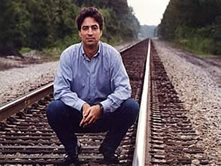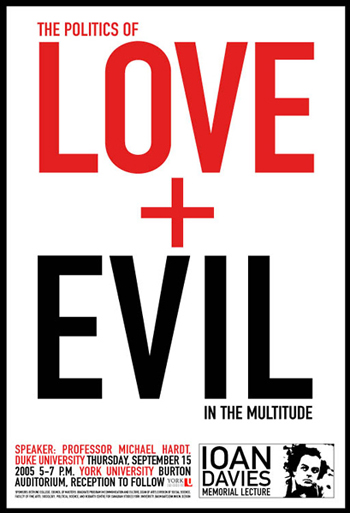~ Michael Hardt & Antonio Negri
For all the great evil that is said to exist in the world today, how do we approach the question of love? For Michael Hardt, it is a political question, but one which has been hijacked by modern thought in three crucial ways. First, love has been corralled within the limits of the family, making it a private affair. Second, the various components of love, such as eros, friendship, and community, have been segregated as if they had nothing to do with one another. Finally, love has come to be understood as the unity that overcomes individual differences, which Hardt sees as particularly destructive to many political projects.
What we need today is to construct a new political concept of love. Love is experimentation with differences that extends across the social field. This is a notion of love, we will find, that political activists are already working with. It is only our theoretical understandings, perhaps, that are lagging behind.
 Michael Hardt is a literary theorist and professor at Duke University. He is the co-author, with Antonio Negri, of the best-selling Empire (Cambridge: Harvard University Press, 2000) and its follow-up Multitude: War and Democracy in the Age of Empire (New York: Penguin Press, 2004).
Michael Hardt is a literary theorist and professor at Duke University. He is the co-author, with Antonio Negri, of the best-selling Empire (Cambridge: Harvard University Press, 2000) and its follow-up Multitude: War and Democracy in the Age of Empire (New York: Penguin Press, 2004).
He is also co-author of Labor of Dionysus: A Critique of the State-form (Minneapolis: University of Minnesota Press, 1994), author of Gilles Deleuze: An Apprenticeship in Philosophy, (Minneapolis: University of Minnesota Press, 1993) and co-editor of The Jameson Reader, (Oxford: Blackwell, 2000) and Radical Thought in Italy: A Potential Politics (Minneapolis: University of Minnesota Press, 1996).


